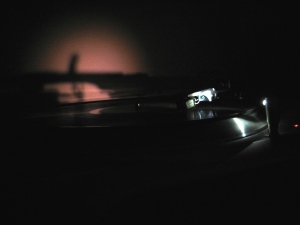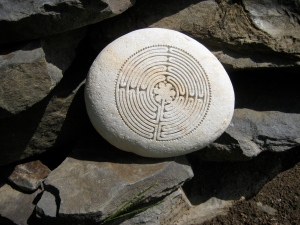
– Photo by Jan Ketchel
I honor this Patriot’s Day by reflecting upon the deep opposition that rocked our world on 9/11/2001 and continues, in ever-changing forms, to deepen the divide in a world so in need of reconciliation. A true patriot loves and defends his/her country. Love and the ability to defend require facing the deepest truths so that action toward reconciliation can be based on what is truly needed; we must all be willing to face the devil within ourselves.
As within, so without. The forces mirrored on the world stage reflect the deepest opposition within the psyche of the human race. Recognizing these opposing sides of ourselves offers us the opportunity to bring to wholeness our individual selves and contribute to reconciling the fundamental challenge of our time. Let us take up the challenge of inner truth versus seeking relief of this inner opposition by simply projecting the evil upon the enemy in the battle cry of war. Such distorted attempts at resolution have never succeeded as they don’t address the true reality of the opposition that is seeking solution.
And what are the opposing forces? At the deepest level these forces reflect humankind’s greatest nemesis: obedience to nature at an unquestioned instinctual level in the Garden of Eden before the fall versus eating the apple of consciousness and choice from the Tree of Knowledge. These are the opposing forces within all of us, two parts of the wholeness of who we are as human beings: instinctive beings with freedom of choice. These two forces are completely out of step in the modern world, leading to violence and opposition.
Our modern Apple has just bedazzled us with the soon to be released iWatch. Apple is the apple of the eye of the modern technological world. For all its gifts it also symbolizes a hubris of mind and technology over the instinctive needs of the world. IPhones rule the world and they keep coming with more and more promise of Eden itself, the latest watch offering to, in a sense, become our personal doctor, monitoring our heart rate, as if this could really cure the true illnesses of humanity.
Meanwhile, ISIS beheads, cuts off the ultimate houser of intellect, the head, insisting upon blind adherence to extreme fundamentalist law. ISIS is so extreme in its fundamentalist opposition to modernity that even Iran covertly aligns with the US in efforts to stop its advance.
The terrorist here is the deeply alienated, instinctive unconscious that has turned terrorist in reaction to the hubris of modernity. On 9/11/2001 it targeted the towers of Capitalism, the World Trade Center, the seat of conservatism and adherence to an old order, the symbol of a world financial order that had for so long neglected, tricked or controlled the resources of the Third World.

– Photo by Jan Ketchel
I heard of a college student writing a paper comparing Google to God and the collective unconscious. The deep psyche is not a lifeless Akashic Record as Google represents but a primal force that reacts to the attitudes of consciousness that have broken ranks with its deeper nature and run away with Apple, Google and Facebook. If consciousness allows itself to be continually lured and led by its fascination with the speed and playthings of technology, it invites the collective unconscious in, whose timepiece stretches into time immemorial to produce the terrorist to slow down its pace and wind its way back to the rhythm of nature.
Individually, we must all take conscious responsibility for the direction of our lives. We must reconcile with our primal needs and instinctive wisdom as we consciously direct the course of our lives toward fulfillment of who we truly are, the seed of our individuality fully realized. If we stray too far from our instinctive needs and wisdom our lives will be sabotaged outwardly and inwardly. Paying attention to the wisdom, messages, and compensatory actions of our dreams is a good place to start to face the truth of who and where we really are.
The Dalai Lama, as the nagual, the leader of Tibetan Buddhism, has suggested ending the lineage of Dalai Lamas. Carlos Castaneda did the same thing as the final nagual of his ancient shamanic lineage. Both leaders represent guardians of ancient traditions that fully reconcile with the truths of nature and the deeper unconscious.
The message for the modern world is to take full responsibility for evolving the self, keeping in alignment with our deepest truths. Indeed, develop your iPhones of modernity, but keep an inner eye on the care of your body, along with the true needs of our interdependent world and the planet we all share. Perhaps the Dalai Lama and Carlos Castaneda, two great foresighted masters of our time, offer a model of reconciliation for the opposing energies of Apple and ISIS that threaten to split apart the world as we know it.

– Photo by Jan Ketchel
Both the Dalai Lama and Castaneda, upon release of their attachment to the rigid traditions of their ancient practices, allow for the diaspora of their teachings to find their way in forms appropriate to modernity. These masters charge consciousness with assuming leadership now in taking life forward, the intent being that we all assume full and individual responsibility for addressing life’s deepest needs and truths. On this Patriot’s day, let us be true patriots and assume full responsibility for the truths: as within, so without.
Assume responsibility. Accepting the shadow ISIS within eliminates the terrorist ISIS without.
In honor and reconciliation,
Chuck



